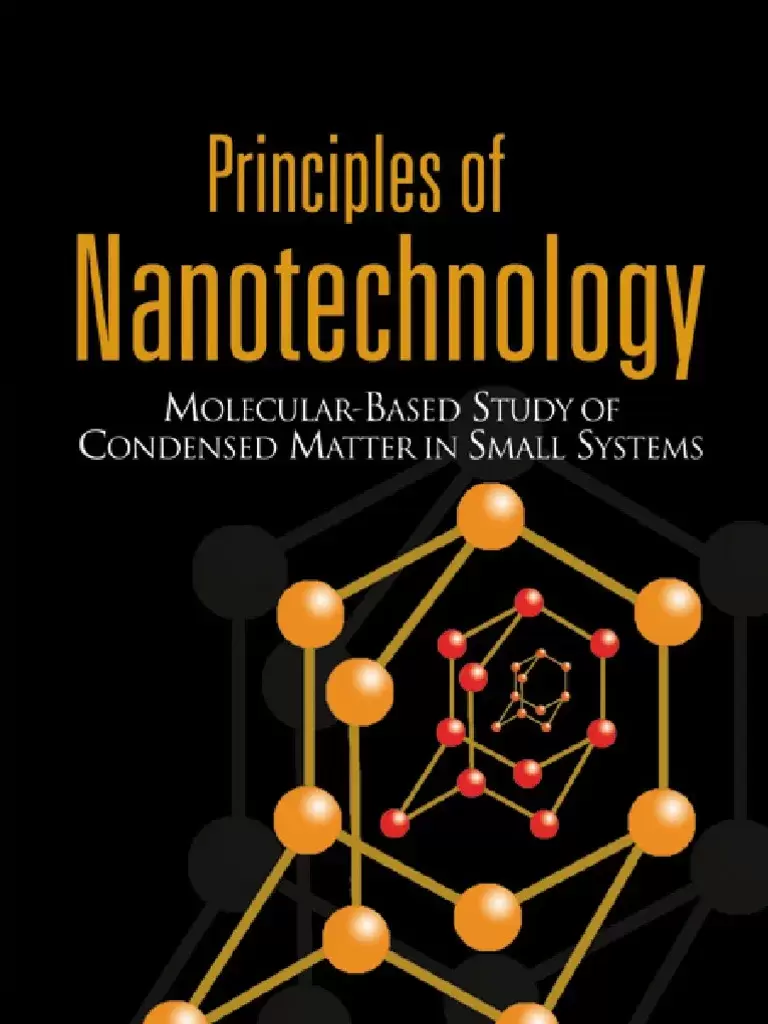Hi everyone, I will be doing regular Book Reviews on my blog page, where I share my thoughts on current topics and various books related to science and technology. Today I want to talk about a book that I read and found very interesting.
Delving into "Principles of Nanotechnology" by Professor G.Ali Mansoori has been a enlightening experience, expanding my understanding from basic concepts to advanced applications in the molecular-based study of condensed matter in small systems. 📚✨ This book navigates the vast landscape of nanotechnology, demonstrating how it empowers us to manipulate atoms and molecules, create innovative materials, and design novel devices. It sheds light on nanotech's diverse applications in medicine, energy, environment, and information technology.
I had the privilege of meeting, and working with the author, Professor Mansoori, during a community development project that involved creating a community awareness campaign on nanotechnology. He was very helpful and supportive, and he shared his insights and experiences on nanotechnology research and education. He also encouraged me to read his book and to explore the possibilities of nanotechnology for solving global challenges. I was very impressed by his passion and knowledge, and I decided to read his book as soon as possible.
Mansoori's writing is both clear and concise, adorned with figures, tables, and equations that bring concepts to life. Catering to a broad audience, the book includes exercises, references, and appendices for deeper exploration. It's an excellent resource for graduate students, ambitious undergraduates in engineering, and those in biological and physical sciences familiar with quantum and statistical mechanics. Even experts in related fields seeking an overview of nanotechnology fundamentals will find it valuable.
The book is very well-written and organized. It explains the concepts clearly and concisely with examples and illustrations. It also provides exercises and problems at the end of each chapter to test your understanding. The book is suitable for graduate students or advanced undergraduates who have some background in quantum mechanics or statistical mechanics. It is also useful for researchers or professionals who want to learn more about nanotechnology or update their knowledge.
hashtag#Nanotechnology hashtag#ChicagoDevelopment hashtag#BusinessDevelopment hashtag#lifesciences hashtag#materialsscience hashtag#metamaterials
Delving into "Principles of Nanotechnology" by Professor G.Ali Mansoori has been a enlightening experience, expanding my understanding from basic concepts to advanced applications in the molecular-based study of condensed matter in small systems. 📚✨ This book navigates the vast landscape of nanotechnology, demonstrating how it empowers us to manipulate atoms and molecules, create innovative materials, and design novel devices. It sheds light on nanotech's diverse applications in medicine, energy, environment, and information technology.
I had the privilege of meeting, and working with the author, Professor Mansoori, during a community development project that involved creating a community awareness campaign on nanotechnology. He was very helpful and supportive, and he shared his insights and experiences on nanotechnology research and education. He also encouraged me to read his book and to explore the possibilities of nanotechnology for solving global challenges. I was very impressed by his passion and knowledge, and I decided to read his book as soon as possible.
Mansoori's writing is both clear and concise, adorned with figures, tables, and equations that bring concepts to life. Catering to a broad audience, the book includes exercises, references, and appendices for deeper exploration. It's an excellent resource for graduate students, ambitious undergraduates in engineering, and those in biological and physical sciences familiar with quantum and statistical mechanics. Even experts in related fields seeking an overview of nanotechnology fundamentals will find it valuable.
The book is very well-written and organized. It explains the concepts clearly and concisely with examples and illustrations. It also provides exercises and problems at the end of each chapter to test your understanding. The book is suitable for graduate students or advanced undergraduates who have some background in quantum mechanics or statistical mechanics. It is also useful for researchers or professionals who want to learn more about nanotechnology or update their knowledge.
hashtag#Nanotechnology hashtag#ChicagoDevelopment hashtag#BusinessDevelopment hashtag#lifesciences hashtag#materialsscience hashtag#metamaterials

 RSS Feed
RSS Feed
